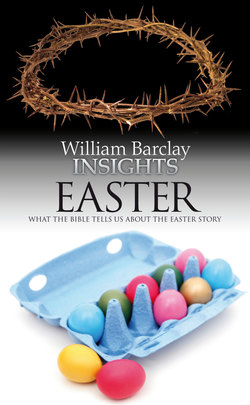Читать книгу Insights: Easter - William Barclay - Страница 6
На сайте Литреса книга снята с продажи.
ОглавлениеForeword
At last! I’ve discovered William Barclay, the Christian’s best kept secret (at least to this generation!) and he’s brilliant. I would describe his commentaries as the theological Brodie’s Notes I’ve been searching for and didn’t know exist. Thanks to Barclay I’m now devouring my Bible in the same insatiable way some devour a bestselling novel. The Bible is brimming with texture and dimension and history and politics and romance and heartache and promise and love and more and at last it is coming into full focus for me.
My new-found Bible-reading experience reminds me of the satisfaction I used to have as a professional actress during rehearsals. The process of transforming the words on the page of my script into a believable, living, breathing character, thrilled me. I revelled in the creative collaboration between actor and director as we strove to get to the heart of the play. Ultimately though, it was the director’s responsibility to have an overview, to capture the meaning of the play – in short, to tell the story.
It can be argued that, similarly, the Insights series takes on the role of director in breaking with tradition to examine the Easter story. Even though this method, like that of any other serious Bible commentary, involves extensive, critical examination and interpretation of the text, it opts out of following the conventional verse-by-verse structure. Instead, it examines the Easter story by leap-frogging around scripture ‘for the sake of keeping the narrative continuous’.
At first glance, this approach may seem chaotic, but it soon becomes evident that looking at the story from different ‘camera angles’ (whether it be form one of the gospels, or Acts or Corinthians) enhances the intensity of the story. The insight gained by galvanising the narrative tool transforms our understanding.
In my opinion, the decision to use this device is a stroke of genius as it allows the commentary to go beyond the boundaries of a typical exegesis. It frees Barclay up to engage with the reader and, like any great director, to stay committed to telling the story.
Barclay teaches, probes, advices, and disturbs. In fact, as we use these notes to aid our Bible-reading experience, we cannot help but be personally challenged. We are compelled into a dialogue. He doesn’t allow us the luxury of a passive read. The experience is much more dynamic than that.
Driven by his passion for God, he’s committed to sharing his great wealth of knowledge with the rest of us in a language that is intelligent, straightforward and free from confusing jargon. He has the gift of making the almost inexplicably complex, clear.
And Barclay isn’t afraid of exposing his heart. His underlying agenda is obvious.
Barclay is passionate for us to know God and by knowing Him to be significantly changed, transformed. Barclay encourages us to do so through understanding more of Jesus. Thanks to his direction we get a stronger sense of the multi-faceted magnificence of Jesus. For me Barclay really strikes a chord when he highlights Jesus’ capacity to forgive, above anything else.
‘Jesus said many wonderful things, but rarely anything more wonderful than, “Father, forgive them, for they know not what they do.” Christian forgiveness is an amazing thing . . . There is nothing so lovely and nothing so rare as Christian forgiveness.’
Without doubt Barclay is an exciting bold mix of heart and mind. Jesus said the greatest of all the commandments is to love God with all our heart, mind, soul and strength. In Barclay we see a man who takes that commandment seriously.
Barclay is essential reading. He was way ahead of his time and is still utterly contemporary. There couldn’t be a better time to read everything he’s written and I recommend beginning with the Insights series – you won’t be disappointed.
DIANE LOUISE JORDAN
